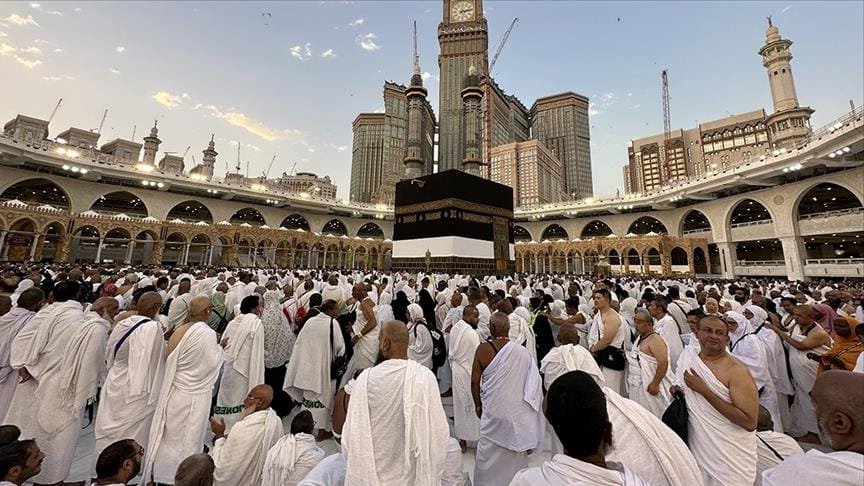
Every year, millions of Muslims from across the globe converge in Mecca, Saudi Arabia, to perform Hajj, the fifth pillar of Islam. This sacred pilgrimage is not just a physical journey but a profound spiritual transformation that symbolizes submission to Allah, unity among Muslims, and the ultimate act of faith.
Hajj is a once-in-a-lifetime obligation for Muslims who are physically and financially able to undertake it. Let’s delve deeper into the historical context, rituals, and immense spiritual and social significance of Hajj in Islam.
Table of Contents
Historical Context of Hajj
The rituals of Hajj date back to the time of Prophet Ibrahim (Abraham) and his son Prophet Ismail (Ishmael). According to Islamic tradition, Ibrahim was commanded by Allah to leave his wife Hajar and son Ismail in the desert. When Hajar searched desperately for water, her perseverance led to the miraculous appearance of the Zamzam well—a central element in the pilgrimage today.
Later, Ibrahim and Ismail were ordered to build the Kaaba, the sacred house of worship. Allah commanded the pilgrimage to the Kaaba for all believers. These acts laid the foundation for what Muslims commemorate every year during Hajj.
“And proclaim to the people the Hajj [pilgrimage]; they will come to you on foot and on every lean camel; they will come from every distant pass.”
— Surah Al-Hajj 22:27
The Key Rituals of Hajj
The Hajj is performed over five days in the Islamic month of Dhul-Hijjah and includes a series of sacred rituals. Here’s a brief overview:
1. Ihram
Pilgrims enter a state of spiritual purity known as Ihram. Men wear two white seamless cloths, and women dress modestly in plain clothing. This symbolizes equality and humility before Allah.
2. Tawaf
Pilgrims circle the Kaaba seven times in a ritual called Tawaf, signifying the centrality of Allah in a believer’s life.
3. Sa’i
Pilgrims walk between the hills of Safa and Marwah, reenacting Hajar’s search for water. This act celebrates faith, endurance, and trust in God.
4. Arafat
The most important ritual of Hajj takes place on the plains of Arafat, where Prophet Muhammad (PBUH) delivered his farewell sermon. Pilgrims stand in prayer and supplication, seeking forgiveness and renewal.
5. Muzdalifah and Mina
Pilgrims collect pebbles in Muzdalifah and later perform the Ramy al-Jamarat in Mina—stoning the symbolic devil to reject evil.
6. Qurbani (Sacrifice)
A symbolic animal sacrifice honors the obedience of Prophet Ibrahim. This act reflects submission and gratitude.
Spiritual Benefits of Hajj
Hajj is not just about rituals; it’s a soul-transforming experience with lasting spiritual impacts.
✦ Forgiveness of Sins
Prophet Muhammad (PBUH) said:
“Whoever performs Hajj and does not commit any obscenity or wrongdoing will come out as the day he was born – pure and free from sins.”
— (Bukhari & Muslim)
✦ Spiritual Renewal
Hajj provides a chance to reset one’s faith, develop humility, and renew one’s relationship with Allah. Many pilgrims describe it as a spiritual rebirth.
✦ Increased Taqwa (God-consciousness)
The pilgrimage helps Muslims cultivate greater self-awareness, patience, and gratitude, enhancing their commitment to Islamic principles.
Promoting Unity and Equality
One of the most beautiful aspects of Hajj is its power to unite Muslims of all races, cultures, and nationalities under the umbrella of one Ummah (community). Everyone, regardless of wealth or status, wears similar clothing and performs the same rituals side by side.
This unique gathering promotes:
- Racial equality
- Economic parity
- Social harmony
- Global Muslim solidarity
Malcolm X, after performing Hajj, famously changed his perspective on race and stated, “I have never before seen sincere and true brotherhood practiced by all colors together, irrespective of their color.”
Hajj and Global Muslim Consciousness
Hajj is a reminder of the global scale of the Islamic faith. The gathering of over 2 million pilgrims every year sends a powerful message of Muslim identity, unity, and resilience.
This experience also fosters a global awareness of social, political, and humanitarian issues affecting Muslims, encouraging a collective sense of responsibility and empathy.
Challenges and Modern Management
While the spiritual essence of Hajj remains unchanged, managing the logistics of millions of pilgrims is a significant challenge. The Saudi government has invested in infrastructure, transportation, safety, and crowd control to ensure pilgrims’ safety and comfort.
For more on modern Hajj logistics and planning, visit the Saudi Ministry of Hajj and Umrah
Final Thoughts
Hajj is far more than a religious duty; it is an epic spiritual quest that transforms hearts, binds communities, and deepens faith. It reminds Muslims of their core values—sacrifice, equality, and unity—and renews their connection with Allah.
Whether you have performed Hajj or aspire to do so, let its message guide your life with purpose, humility, and faith.
Have you performed Hajj or plan to in the future? Share your experience or thoughts in the comments below!
Don’t forget to explore more Islamic topics and lifestyle insights at BOfferly.com